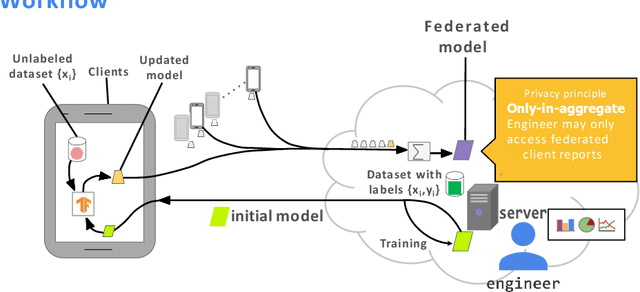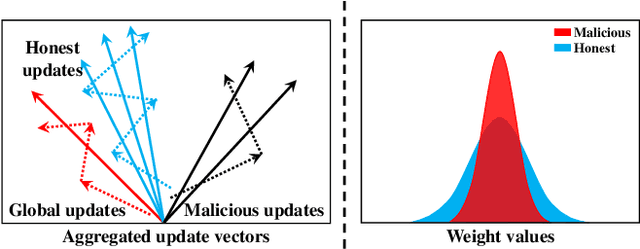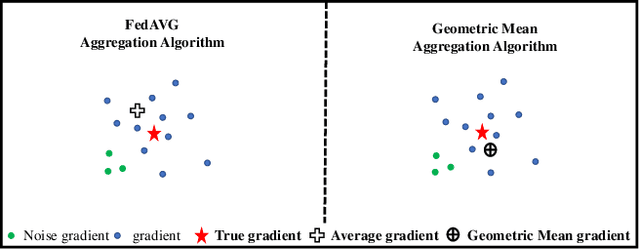RC-SSFL: Towards Robust and Communication-efficient Semi-supervised Federated Learning System
Paper and Code
Dec 08, 2020



Federated Learning (FL) is an emerging decentralized artificial intelligence paradigm, which promises to train a shared global model in high-quality while protecting user data privacy. However, the current systems rely heavily on a strong assumption: all clients have a wealth of ground truth labeled data, which may not be always feasible in the real life. In this paper, we present a practical Robust, and Communication-efficient Semi-supervised FL (RC-SSFL) system design that can enable the clients to jointly learn a high-quality model that is comparable to typical FL's performance. In this setting, we assume that the client has only unlabeled data and the server has a limited amount of labeled data. Besides, we consider malicious clients can launch poisoning attacks to harm the performance of the global model. To solve this issue, RC-SSFL employs a minimax optimization-based client selection strategy to select the clients who hold high-quality updates and uses geometric median aggregation to robustly aggregate model updates. Furthermore, RC-SSFL implements a novel symmetric quantization method to greatly improve communication efficiency. Extensive case studies on two real-world datasets demonstrate that RC-SSFL can maintain the performance comparable to typical FL in the presence of poisoning attacks and reduce communication overhead by $2 \times \sim 4 \times $.
 Add to Chrome
Add to Chrome Add to Firefox
Add to Firefox Add to Edge
Add to Edge